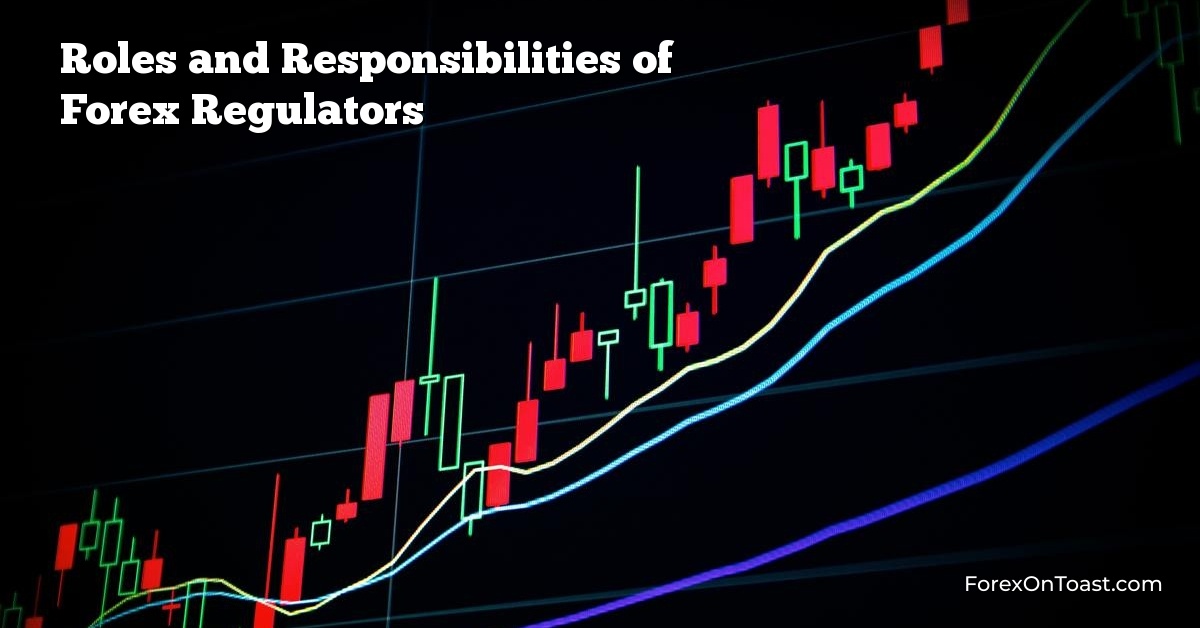You’ve probably heard of forex regulators, but who are they, and what do they do?
Most countries have their forex regulators. These organizations are tasked with overseeing the forex market within that country.
Their role is to protect investors and ensure that traders are honest and transparent. They also oversee the activities of forex brokers. If a broker is found to have done something illegal, the forex regulator can revoke that broker’s license.
In this post, we’ll explore the jobs of forex regulators and their roles in the forex market.
What is Forex Trading?
Forex trading is when a trader buys a currency and sells a different one, and the exchange range fluctuates according to the demand and supply. The trade for currencies takes place in the foreign exchange market that is open from Monday to Friday.
The Foreign exchange market is open 24 hours a day. All currencies are traded over the counter (OTC), which means there are no physical exchanges, and a worldwide network of financial institutions and banks oversee the operations. As a result, the vast majority of trading in the market is between institutional traders.
Why Regulate Forex?
It is essential to regulate Forex because the number of transactions that are taking place daily makes it an attractive target for scammers and white-collar criminals. Some criminals have even fooled traders by forming fake brokerage firms.
The Job of Forex Regulators
- Offering licenses to brokers and supervising them
- Ensuring broker compliance with segregation of funds
- Ensuring compliance with the standard of reporting
- Enforcement of sanctions in case of market infractions
The Most Important Forex Regulators
- Australian Security and Investments Commission (ASICS)
- The Bundesanstalt Fur Finanzdienstleistungsaufsicht (BaFIN) (Germany)
- Commodities and Futures Trading Commission (CFTC) (United States)
- Cyprus Securities and Exchange Commission (CSEC)
- Financial Conduction Authority (FCA) (United Kingdom)
- Federal Financial Markets Services (FFMS)
- Swiss Financial Market Supervisory Authority (FINMA)
- Financial Market Authority (FMA) (Austria)
- Financial Services Agency (FSA)
- Financial Services Board (FSB) (South Africa)
- Financial Services Commission (BVI)
- Financial Services Commission (FSC) (Mauritius)
- International Financial Services Commission (IFSC)
- New Zealand Financial Service Provider (FSP NZ)
- Malta Financial Services Authority (MFSA)
- Securities and Exchange Board of India (SEBI)
- Vanuatu Financial Services Commission (VFSC)
- Abu Dhabi Central Bank (UAE)
How to Check for Forex Regulated Brokers?
Forex regulators now insist that brokers state their license no. on their website. This action must be done conspicuously and should not be hidden in an unknown section of the website.
- Some Forex brokers have websites equipped with search engines that assist users in searching for the statuses of brokers. All the trader needs to do is type the name of the Forex broker.
- Forex regulators will also give warnings about scam brokers
- Forex regulators also keep an updated brokers blocklist
Conclusion
There are several regulatory authorities for Forex, and they exist in almost all countries. These authorities provide a safe working network and keep an eye on brokers. However, with so many transactions in Forex daily, it is an easy target for scammers and white-collar criminals.
In this article, we have discussed the roles and responsibilities of Forex regulators and how they operate. We have also discussed how the regulators deal with the brokers and what a broker needs to do to be eligible. Without this vast network of regulators, Forex trading would not be possible.
